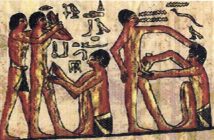They have many different names, but most commonly referred to as “Nerds” and “Geeks”. Well technically there are differences, but the labels are often used interchangeably.
The term “Nerd” was popularized in America during 1980’s, and has historically been used in a negative connotation. The 1984 cult classic Revenge of the Nerds is quite possibly the most infamous characterization of the American Nerd.
These outdated “nerd stereotypes” still exist in mainstream culture, ignoring the complex changes in society and technology. The Big-Bang Theory is a perfect example of how current nerd stereotypes are outdated; being bad at sports, lack of social development, incompetence with the opposite sex, etc.
Despite this classic interpretation of the “nerd”, many claim that “nerd culture” is slowly blending-in with the rest of mainstream culture, given the recent popularization of content, which used to be considered traditional nerd culture.
Comic book movies have dominated box offices, where they gained popularity in 2008 from the “The Dark Knight” and “Iron Man.” Six of the top ten movies from 2014 were linked to a graphic novel.
“More than half of any given year’s Top 10 films are comic book adaptations. Until that changes, studios will keep churning them out.”
The modern interpretation of a nerd is much different.
According to PBS’ Idea Channel, “Being a nerd for something involves spending significant amount of time learning about that thing. Thinking about its concepts and its deeper meanings. When someone is a nerd for something, that desire is fueled by an authentic interest in that thing.”
This interest, the thing you are a nerd for, should not be socially motivated or superficial.
There are several popular misunderstanding of the concept of introverts and extroverts. The internet has simplified introverts, commonly confusing introversion and shyness. This popular “characterization” of the introvert is commonly misinterpreted as a nerd. In the past few years, it has become extremely popular to self-identify as a nerd.
The introverted is celebrated in society, and associated with nerd-like technological prowess. This might explain the recent explosion of self-identifying nerds.
You may ask yourself, why does any of this matter? In the Huffington Post Article, “A Professional Nerd on Why Nerds Matter“
“Nerd matters because it provides a sense of community for those that need it. In a landscape where it is easier than ever to feel isolated, it welcomes in anyone who wants to express enthusiasm, and gives them a place to share it — People are celebrating community and forging new relationships in a space without judgment, but they are also learning to move beyond the comic book conventions. –Aaron Sagers.
Have you ever walked into a crowded room full of strangers and not worry about being judged?
From my personal experience, I have always been social awkward, which has made it difficult making friends. At age 13, I started visiting a local card shop to play Magic the Gathering. From there, I was invited to “LAN parties,” where we would play video games for several days at a time. I met the people I consider now to be lifelong friends. I developed both the critical thinking and social skills necessary to assimilate into society, giving me the confidence to pursue my dreams.
My next article will address the negative aspects of “nerd culture” that concerns me.




